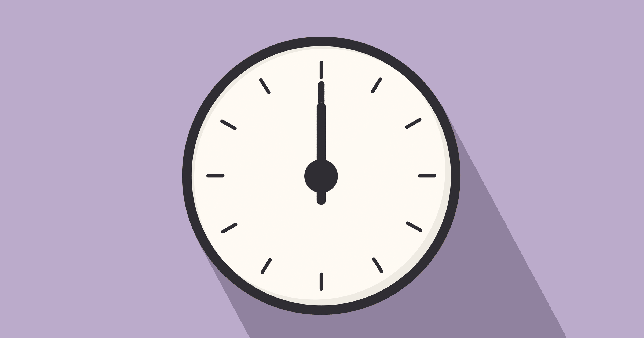
We’re busy bees who like to rush through life, barely pausing to take a breath.
We know full well this isn’t the way to do things.
Slow living is a rising trend for good reason – calming down our breakneck pace could make us happier and healthier, and slow the tide of collective burnout.
But ‘go slow’ can be easier said than done.
We might know on a logical level that we don’t need to go so fast, speeding through life, deifying busyness, and running ourselves dry, but then we just keep doing exactly that – even beating ourselves up when we don’t meet these ever-increasing ideals of productivity, or finding it impossible to just sit and do nothing.
So, how can we make ourselves take the pace down? Here are some practical steps to take.
Schedule empty space
Happiness expert Julia Paulette Hollenbery tells Metro.co.uk: ‘Realistically, how many meetings can you attend in a day, or a week, and still be effective?
‘It may be that what you need is some blank, empty, do-nothing space.
‘Block some uncategorised time into your diary ahead of time, so you can unwind, reorganise and refocus.’
It sounds silly, but just having ‘relax and do nothing’ officially in the diary can make it a commitment you can’t bail on.
Embrace nature’s timings
Ever noticed an urge to sleep more and do less in the winter? Stop blocking off that instinct and forcing yourself to keep plodding away at the same pace.
‘In winter, the whole of the natural world is retreating inwards and resting in stillness,’ says Julia. ‘Your natural human animal needs are also in-tune with that.
‘You need more rest and down-time in the winter than in the summer. It is ok in winter to allow yourself to sleep a little longer and start work a little later.
‘It is ok to feel your weariness and exhaustion – to be kind to yourself and allow yourself slack.’

Create a soothing space
Take some time to make your home and working spaces places you actually want to be, that make you feel calm and in control, not overwhelmed, distracted, or exhausted.
It might not seem like a big deal, but piles of clutter can start to take up space in your mind, too.
‘It takes energy to ignore things; energy that can be better employed,’ says Julia.
‘Taking time to tidy-up your workspace and to create a little more visual harmony and order, will support you in clear thinking, focus and concentration.’
Prioritise and plan
‘Not everything is urgent,’ Julia reminds us. ‘Slowing down to take time to consider what needs to be done, what is really important, and should be prioritised, is a good practice. It means that good decisions, rather than fast decisions and actions, are done.
‘Good decisions take time. You probably need to plan your own work and that takes time. Planning is not time wasted – it is powerful.’
Pause
Taking a break is not a bad thing – it tackles stress and allows you to get better work done.
‘You can interrupt your unconscious habit of rushing into non-stop doing, by what I call, productive pausing,’ Julia explains. ‘That is to halt, for a few seconds, minutes or quarter of an hour, to stop working and do something else entirely – whether that’s making a cuppa, talking to a colleague or going for a walk.
‘You will return to your work task refreshed, renewed and ready to focus again…’

Remember that your wellbeing matters
What’s more important, this one work task or your life?
That might sound like a dramatic question, but the truth is that constantly prioritising work and other people’s needs over your own can be destructive.
Remind yourself that every moment of overwhelm, every day rushed through, every decision to work later instead of resting, can build up towards burnout.
You cannot power through getting things done at the expense of your health.
‘Amongst all of the tasks to be done, you also matter,’ says Julia. ‘Do not override your physical impulse to eat, drink, toilet or rest.
‘Your body knows what’s best for you. Overwork can lead to burnout, depression and ill-health.
‘Sometimes interrupting your work and going slowly, is the fastest thing you can do.’
Embrace imperfection
Chasing after perfection at all costs isn’t a smart game.
What’s much more achievable: accepting that sometimes ‘done’ is enough, and that ‘happy’ is better than ‘perfect’.
We have to stop holding up perfectionism as a badge of honour, and admit that the way we’re doing things isn’t working.
Julia tells us: ‘Not only is it ok for you to feel your fear, confusion and weariness, it is also ok to talk about it with others.
‘These moments of chat with others are important. It normalises the universal truth of being an imperfect human trying your best to do good work.’
Julia Paulette Hollenbery is a happiness expert and author of The Healing Power Of Pleasure – Seven Medicines For Rediscovering The Innate Joy Of Being.
Do you have a story to share?
Get in touch by emailing [email protected].
Follow Metro across our social channels, on Facebook, Twitter and Instagram
Share your views in the comments below
Source: Read Full Article



